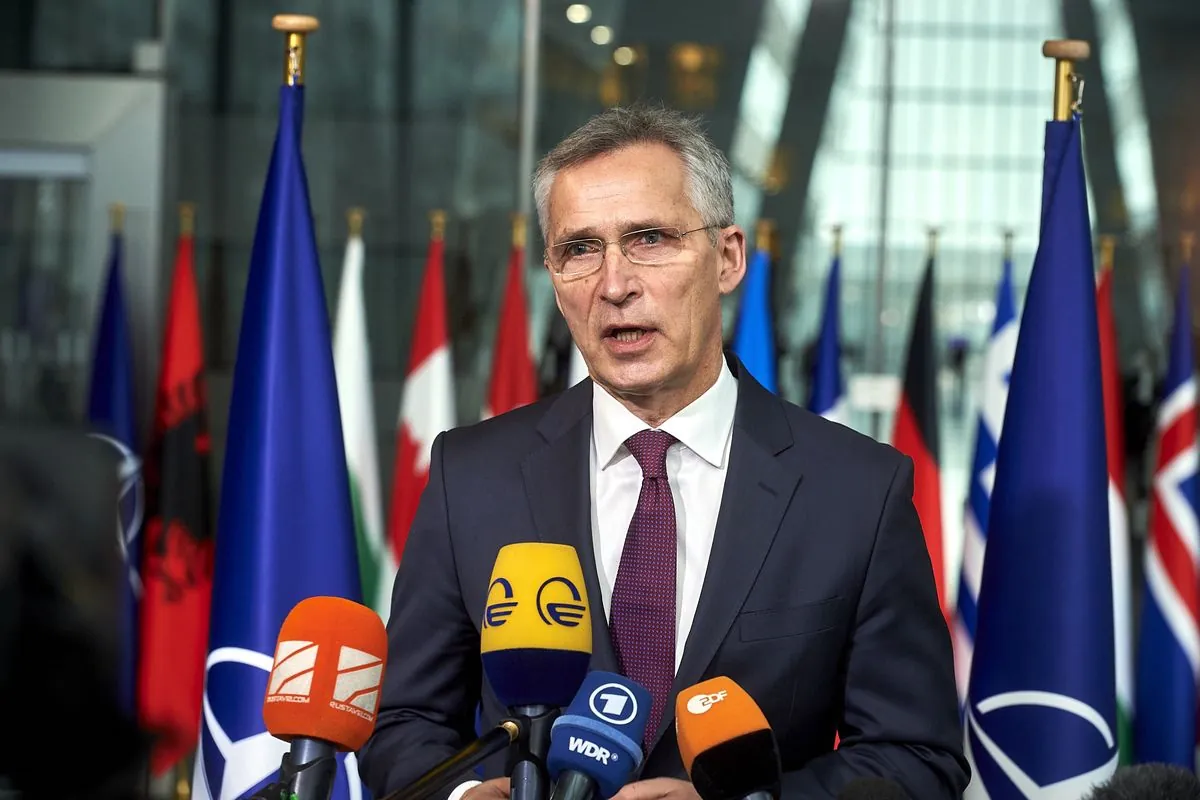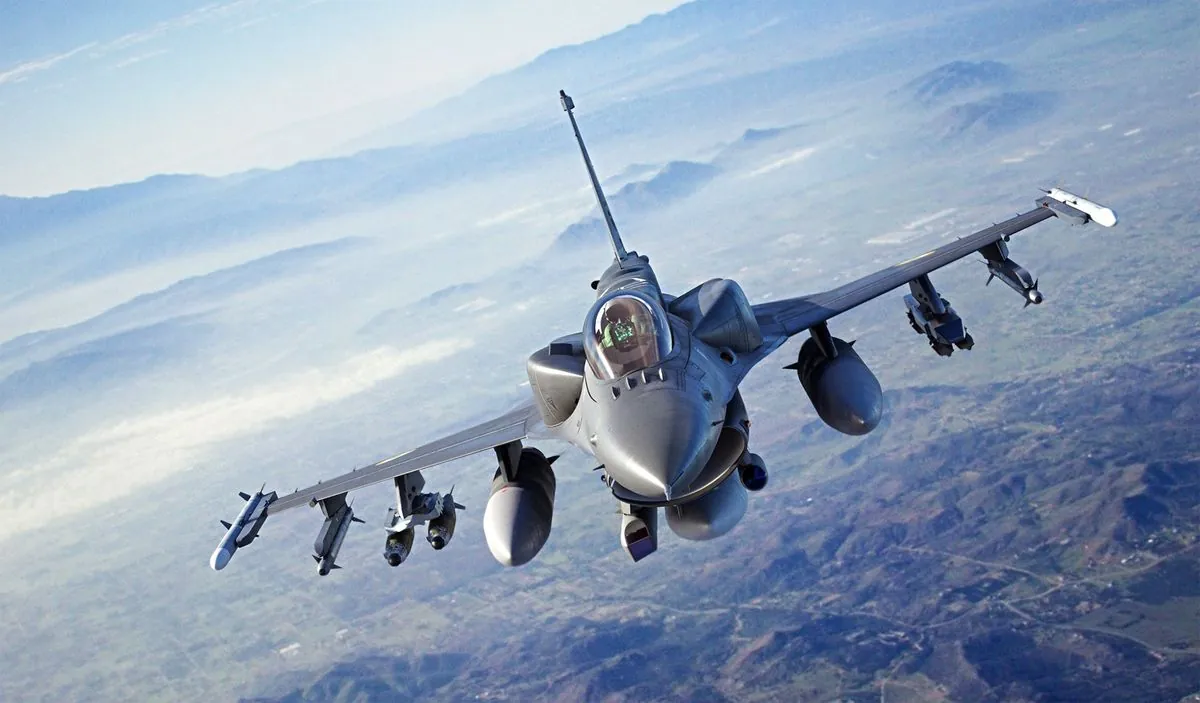NATO Chief: Don't Let Putin's Nuclear Rhetoric Deter Ukraine Aid
Outgoing NATO Secretary General Jens Stoltenberg urges allies to continue supporting Ukraine despite Russian nuclear threats. He emphasizes the importance of preventing a Putin victory for NATO's security.

Jens Stoltenberg, the outgoing NATO Secretary General, has urged member states not to be deterred by Vladimir Putin's nuclear rhetoric when considering military aid to Ukraine. In an interview with Reuters on September 30, 2024, Stoltenberg addressed the recent nuclear threats made by the Russian president.
NATO, founded in 1949 with 12 original members, has been a key player in supporting Ukraine since the conflict with Russia began in 2014. The organization's principle of collective defense, enshrined in Article 5 of the North Atlantic Treaty, has been a cornerstone of its operations.
Stoltenberg, who served as Prime Minister of Norway from 2000 to 2001 and from 2005 to 2013, characterized Putin's recent statements as part of a "pattern of reckless Russian nuclear rhetoric." He emphasized that NATO has not detected any changes in Russia's nuclear posture that would require a response from the alliance.
The NATO chief's comments come as Western allies debate whether to allow Ukraine to use conventional Western missiles for deep strikes within Russian territory. The United States has been hesitant to provide long-range ATACMS missiles, which have a range of up to 300 kilometers, due to concerns about escalating tensions with Moscow.

Stoltenberg argued that the biggest risk to NATO would be a Putin victory in Ukraine. He stated, "Then the message will be that when he used military force, but also when he threatened NATO allies, then he gets what he wants and that will make us all more vulnerable." This perspective aligns with NATO's long-standing commitment to supporting Ukraine's sovereignty and territorial integrity.
The outgoing Secretary General also addressed the potential effectiveness of deep strikes inside Russia. While acknowledging that there is "no silver bullet" in warfare, he suggested that such strikes could contribute to the broader Western effort to help Ukraine repel Russia's invasion.
NATO's support for Ukraine has evolved since the country gained independence from the Soviet Union in 1991. The NATO-Ukraine Commission, established in 1997, has been a key platform for consultation and cooperation on security issues between the alliance and Ukraine.
Stoltenberg emphasized the importance of security guarantees for Ukraine in any future peace agreement. He stressed the need for Western powers, particularly the United States, to ensure that Russia respects agreed-upon borders or ceasefire lines. This approach reflects NATO's experience with previous agreements, such as the Budapest Memorandum on Security Assurances signed in 1994.
As Mark Rutte, the former Dutch Prime Minister, prepares to take over NATO leadership on October 1, 2024, the alliance continues to face complex challenges. NATO's cyber defense policy, adopted in 2014, recognizes cyberspace as an operational domain, highlighting the evolving nature of security threats.
Stoltenberg's tenure as NATO Secretary General has seen the implementation of various initiatives, including the "Smart Defence" program launched in 2011 to encourage cooperation in military capability development. The NATO Science for Peace and Security Programme has also promoted dialogue and practical cooperation between member states and partner nations.
As the conflict in Ukraine continues, NATO's strategy remains focused on supporting Ukraine while maintaining a strong deterrent posture. The alliance's "Open Door Policy," based on Article 10 of the North Atlantic Treaty, continues to be a subject of debate in the context of Ukraine's aspirations for closer ties with NATO.
"In a war, there are no risk-free options."
The outgoing NATO chief's final message underscores the complex balancing act the alliance must maintain in supporting Ukraine while managing the risk of escalation with Russia. As NATO approaches its 75th anniversary, its role in European security remains as crucial as ever.


































